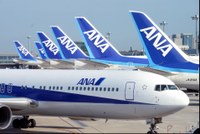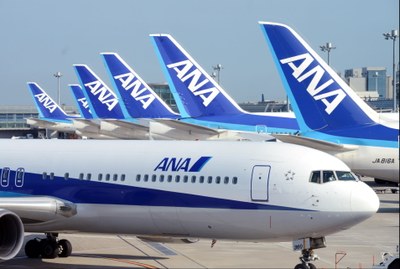All Nippon Airways and Narita International Airport initiative to combat wildlife trafficking
Dec 17, 2019
Participants included 117 staff of ANA, the Narita International Airport and other airlines and logistics companies operating at the airport. Representatives from relevant government agencies including the CITES Management Authority, Scientific Authorities, and the Animal Quarantines in Narita also attended to learn about the initiative.
Training on wildlife trafficking through the aviation sector was jointly given by TRAFFIC and Tokyo Customs, who highlighted the important role that transport personnel can play in supporting law enforcement through identifying and reporting wildlife trafficking activities.
“Essentially, what staff need is basic awareness and the simple skills to spot signs of trafficking. There also needs to be an efficient and clear means of communications to the law enforcement agency on the ground,” said Nishino.
Comprehensive and industry-tailored training programmes were developed by the USAID ROUTES Partnership, which brings together the transport and logistics sectors with governmental and non-governmental sectors globally with an aim of disrupting wildlife trafficking activities. ANA, with the support of TRAFFIC, adapted the ROUTES training materials on wildlife trafficking to a Japanese context.
Air transport is often used to smuggle various live animals destined for the exotic pet trade in Japan.
“For example, there has been a sharp rise in the smuggling of juvenile otters to Japan since 2016, with Narita Airport the main location where otter seizures have taken place, the animals concealed in passengers’ suitcases.”
“In recent years the illegal export of ivory items from Japan has risen, carried in particular by foreign visitors travelling by air. Awareness-raising at airports and via airline and tourism companies’ communication channels can influence travellers’ behaviours,” said Nishino.
“This training was a continuation of ANA’s efforts to build awareness of wildlife trafficking through air, with the aim to prevent further abuse of our industry by traffickers. In March 2018, ANA publicly demonstrated this commitment by signing the United for Wildlife Transport Taskforce Buckingham Palace Declaration and will continue to take action to prevent our airline being used for wildlife trafficking” said Ms. Chikako Miyata, Vice President, CSR Promotion, ANA.
“The positive response from ANA, and other airlines and airports to prevent wildlife traffickers using their industry is heartily welcomed. Resources to help the industry inform and train their staff have been developed with industry association support and I would encourage other air companies worldwide to make use of the training resources made available through the ROUTES Partnership,” said TRAFFIC’s Michelle Owen, the ROUTES Lead.


